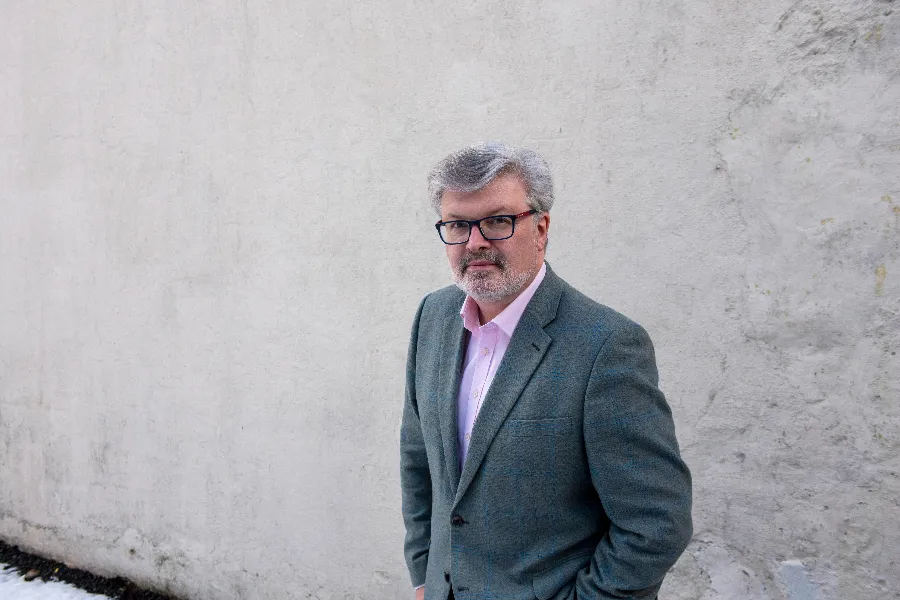Why Music and Silence Are Deeply Spiritual
Composer Sir James MacMillan transforms silence into song.

Renowned Scottish composer and conductor Sir James MacMillan stated that, in the modern world, “Silence is almost extinct.”
Echoing Cardinal Robert Sarah’s warning that Western materialistic culture is destroying the ability to encounter God, MacMillan — during a recent interview with the Scala Foundation, whose vision is to restore meaning and purpose to American culture by focusing on the intersection of art, liturgy and education — argued that “the war against silence is a war against ourselves and against our interior life.”
How is it that MacMillan, 65, believes that music, what he calls the most spiritual of all the arts, can prepare us to experience a silence that is a fullness rather than an abyss? When I spoke to him, I asked MacMillan to elaborate on his writings about silence in his memoir A Scot’s Song, in which he reflected that “silence is not absence but presence. It is the silence of accompaniment, of Christ accompanying us on the Via Dolorosa, suffering with us, as one of us, rather than nihil. And the notion of silence as presence, as mystical or metaphysical substance has many musical analogies.”
The openness and attentiveness required for truly listening to music can prepare us for the kind of receptivity needed in prayer and meditation.
“Lovers of music are transformed by music,” he stated. Similarly, in contemplative prayer, “you have to be open to the possibility of being changed through what happens in that silence.”
In Christian prayer, silent contemplation is a sacrifice of the self to encounter God. Similarly, with music, MacMillan explained that, “for complex music to speak to you, you need to open yourself to an objective authority. There’s no point in listening to a Beethoven symphony if you’re going to do something else. That music is not going to reach you. Just like complex narratives in history have an authority that cannot be hurried, you must obey the structures and the timescale of these pieces of music. The listener cannot come into the presence of music in a state of defiance and resistance. You have to come in a state of openness, respect and love.”
As with music, in contemplative prayer, “you have to sacrifice something of yourself; you have to give something of your ego. You can’t enter into the presence of God in a state of defiance and resistance. You must be open to the possibility of being changed through what happens in that silence.”
Silence can be a fertile ground for creativity, allowing new ideas and inspirations to emerge. MacMillan described how “it’s in a state of absence that the sense of music — little embers of music are fanned into being, the little flames and flickers of nothing, to begin with — can flicker and be fanned into these massive, big narratives and symphonic narratives.”
Reflecting on losing his granddaughter when she was only 6 years old, he recalled how “I had to get back to writing music. After silent, broken, difficult times in the weeks and months after all that happened, suddenly, suddenly, one day, it all began again. I had an encounter with silence that allowed the little embers to come alive again.”
In a world that increasingly values speed and efficiency, making time for this deep engagement — whether with music or in prayer — becomes a radical act. Yet in these moments of full presence, of openness to the mysterious presence of God in silence, we often find our deepest experiences of beauty, meaning and transcendence.
Josef Pieper called on artists to return to making art and music that help us enter into “festive contemplation of universal realities and their sustaining reasons.” Otherwise, art and music become simply “novel,” “profiteering,” “nervous distraction,” “crass entertainment” or “seduction.”
We should not fear learning the obedience necessary to appreciate the complexity of great music any more than we should strive to know the presence of God that comes to us in silence. In attentive silence, we may find a deeper faith that doesn’t deny human suffering but transforms both our suffering and our joy — much like MacMillan, as a composer, transforms silence into song.















